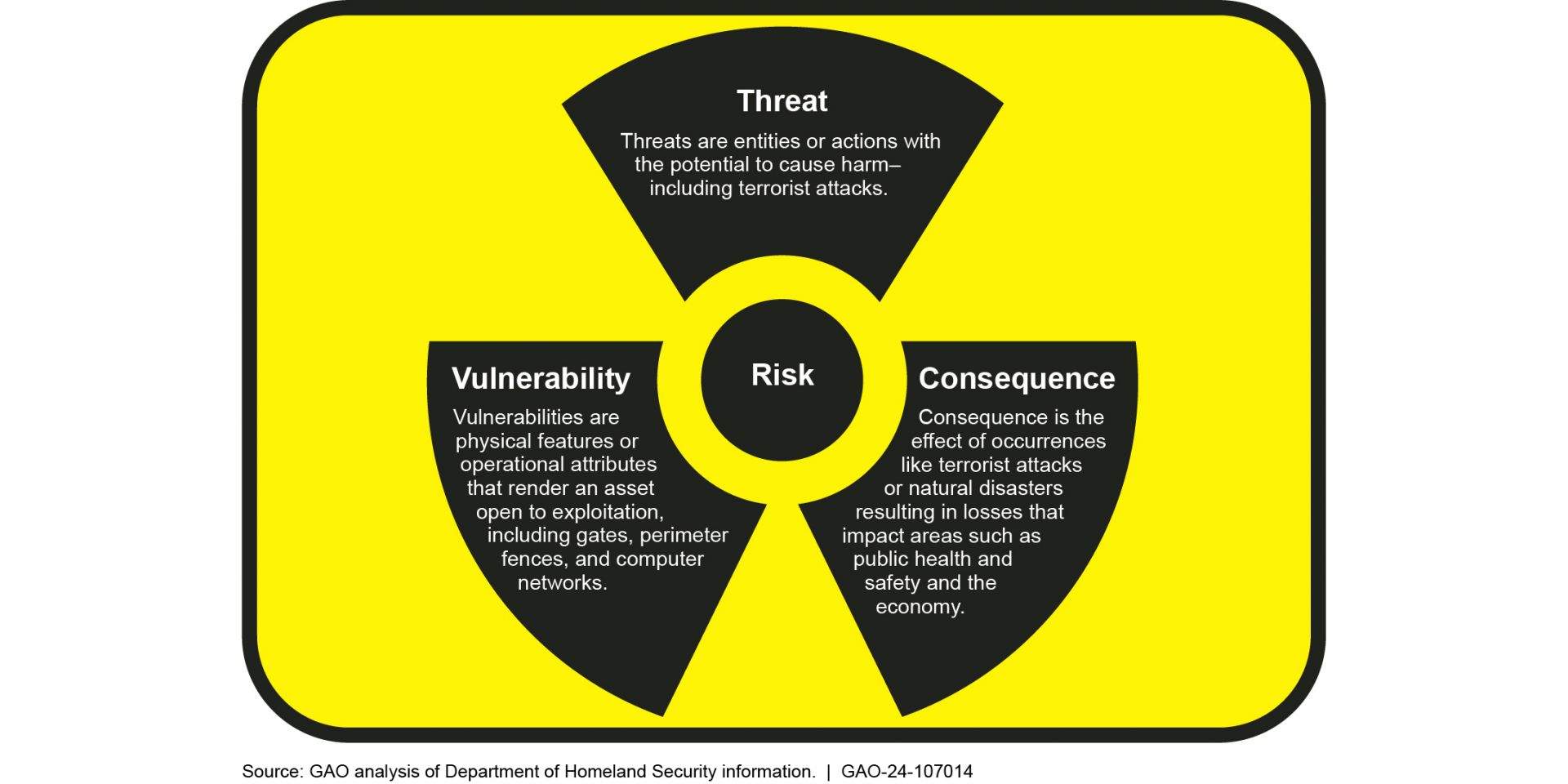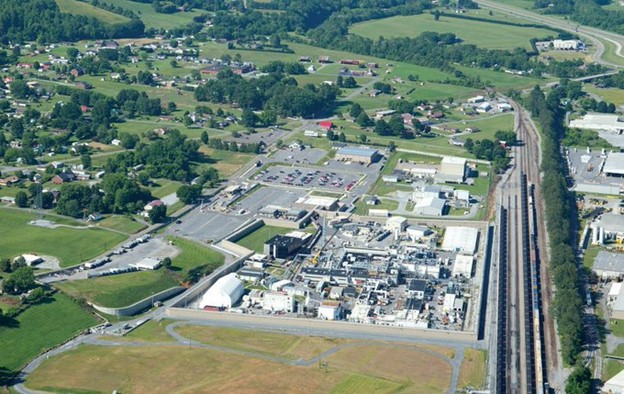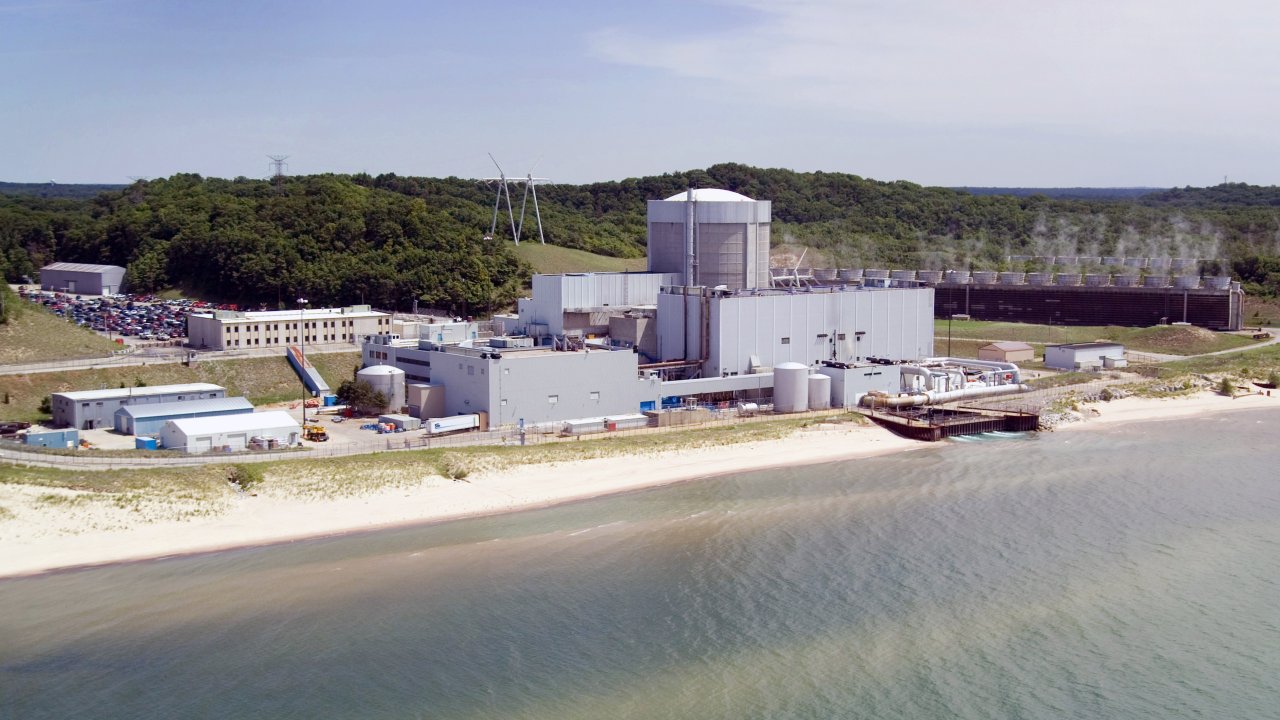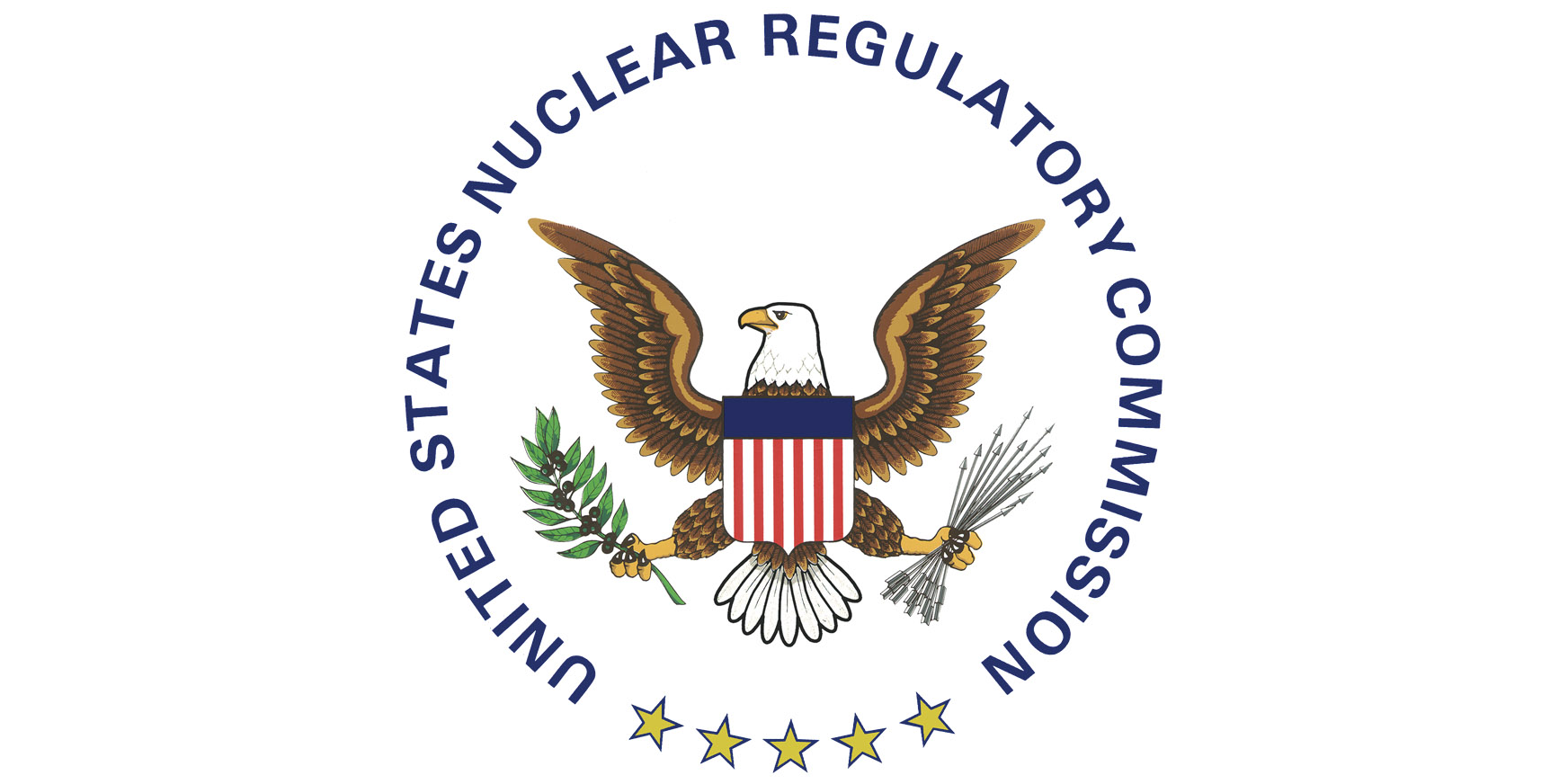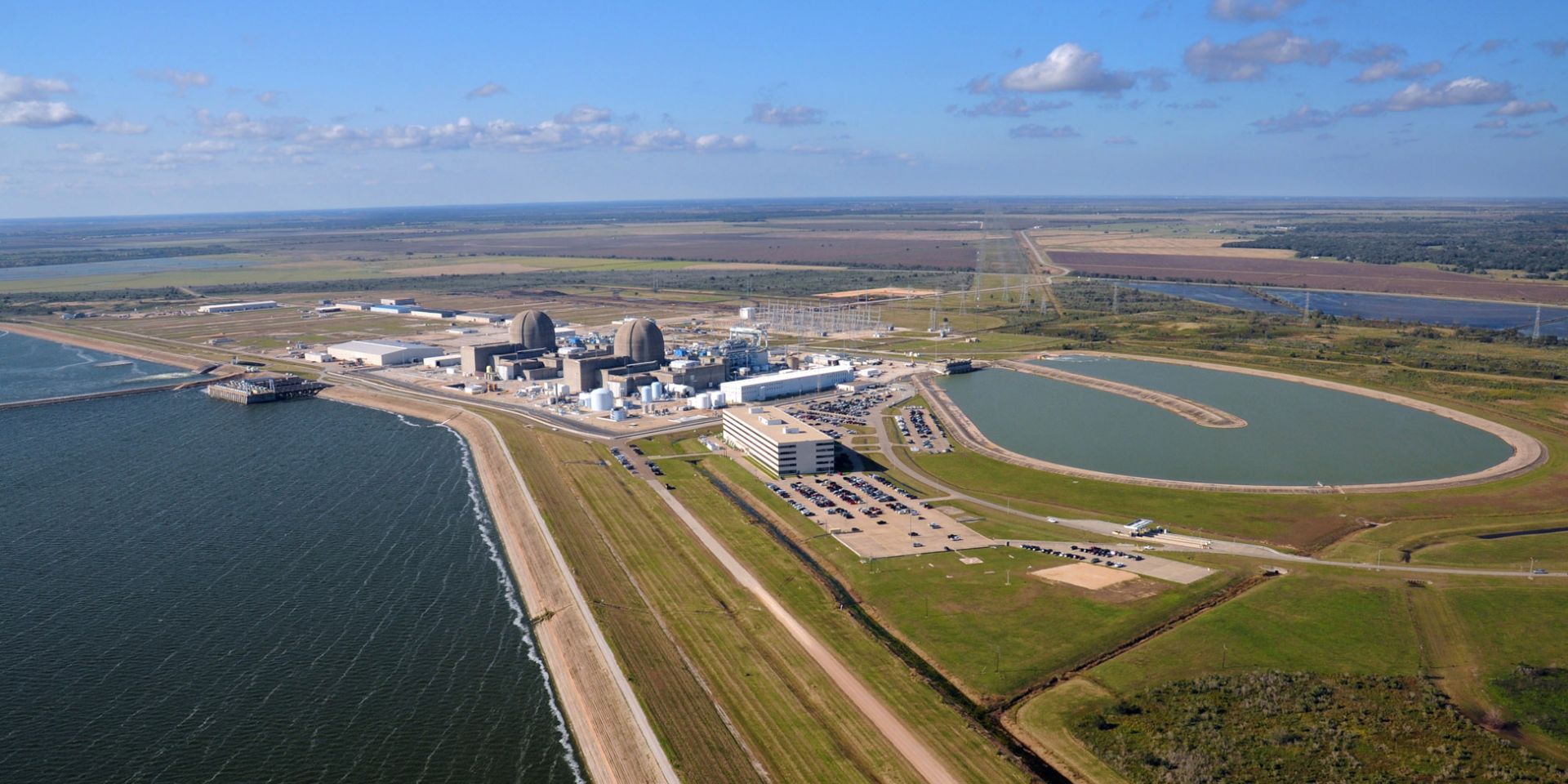The three elements of radioactive material risk (Image: U.S. GAO)
A new report from the U.S. Government Accountability Office finds that the Nuclear Regulatory Commission has not taken the steps needed to address the potential economic and societal radiological risks that could arise from a “dirty bomb.”
Decommissioning begins on the closed Wisconsin power plant
Wisconsin’s Kewaunee nuclear power plant as it appeared in May of this year. A number of ancillary buildings have already been demolished and their waste removed. The intermodal waste transportation staging areas can be seen to the left. The site ISFSI is out of view to the right. (Photo: EnergySolutions)
In October 2012, Dominion Energy announced it was closing the Kewaunee nuclear power plant, a two-loop 574-MWe pressurized water reactor located about 27 miles southeast of Green Bay, Wis., on the western shore of Lake Michigan. At the time, Dominion said the plant was running well, but that low wholesale electricity prices in the region made it uneconomical to continue operation of the single-unit merchant power plant.
The Nuclear Fuel Services facility in Erwin, Tenn. (Photo: BWXT)
BWX Technologies subsidiary Nuclear Fuel Services Inc. suspended operations last Friday at a Tennessee facility to assess conditions following Hurricane Helene. A company spokesperson said the site remained "in safe and secure condition."
Nuclear stakeholders celebrate “powerful clean energy comeback story”
The Palisades nuclear power plant. (Photo: Holtec International)
With a $1.52 billion loan from the Department of Energy and $1.3 billion in grants to rural electric cooperatives near the plant, the ambitious plans to restart Michigan’s Palisades nuclear plant next fall are moving ahead.
(Image: City of Idaho Falls)
Microreactor developer Aalo Atomics and municipal electric utility Idaho Falls Power have developed a memorandum of understanding that could lead to the siting of seven sodium-cooled microreactors and a power purchase agreement for Idaho Falls.
Representatives from Natura Resources, the Zachry Group, Abilene Christian University, the University of Texas–Austin, Texas A&M University, and the Georgia Institute of Technology with the construction permit at NRC headquarters. (Photo: Natura Resources)
The Nuclear Regulatory Commission issued a construction permit yesterday to Abilene Christian University, giving ACU and its partners the go-ahead to build the Molten Salt Research Reactor (MSRR) facility on its Abilene, Texas, campus. The 1-MWt research reactor is the first molten salt–fueled reactor to get a construction permit from the NRC. After Kairos Power’s Hermes, it is the second non–light water reactor construction permit issued by the NRC.


